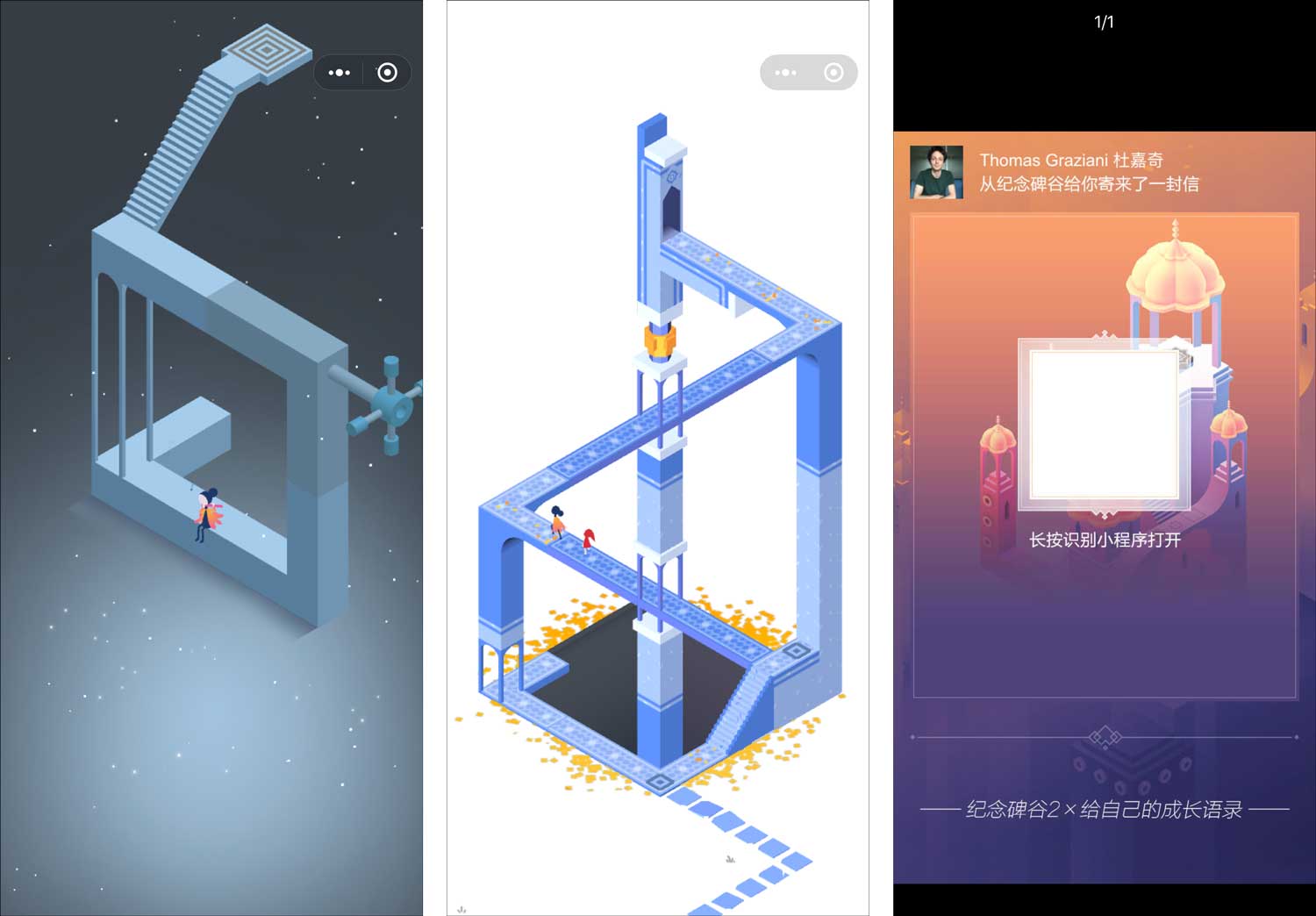WeChat recently released mini-program games. Let’s look at this new feature: why does it matter? What are the main advantages, drawbacks and prospects of WeChat mini-games?
What are WeChat mini-games?
WeChat mini-games are simply WeChat mini-programs used for gaming purpose. Just like you can turn your H5 Shop into a mini-program shop, you can also turn your H5 game into a mini-game.
There are already plenty of mini-games already available: simple “flash-style” games, chess, war games, and more.

How to find WeChat mini-games?
WeChat mini-games can be found by following these steps:
- Go to the “Discover” section of your WeChat Account
- Click on “Games”
- In the search bar, type “小游戏”, or the name of the game
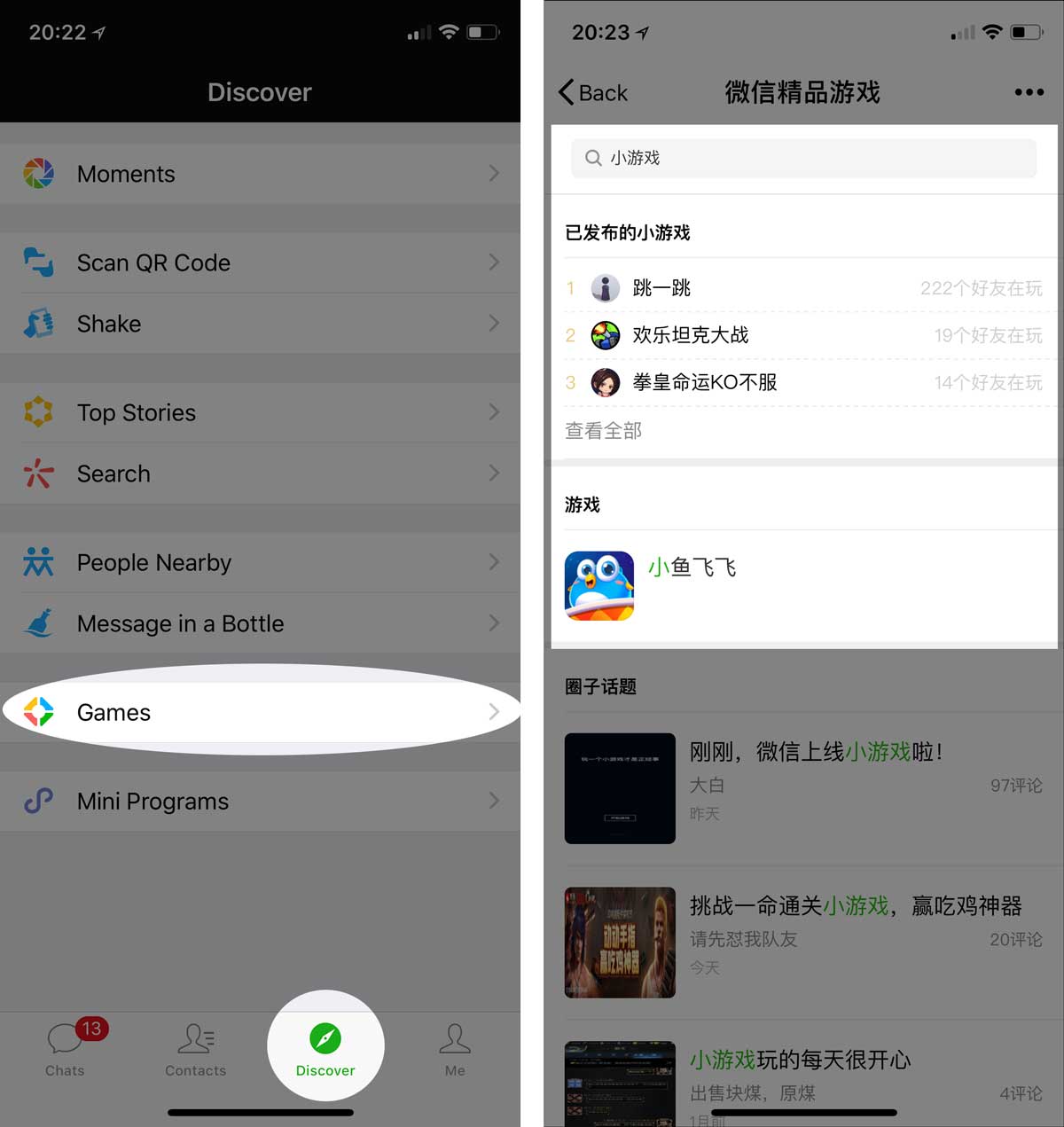
You’ll see a list of top-games played among your friends.
Or you can also simply type the name of the game in the search bar.
What are the main advantages of WeChat mini-games?
WeChat mini-games have several advantages compared to H5 games:
- They’re faster
- They have more social features integrated with WeChat
They are also much faster to install than native Apps (as they’re automatically installed after a short loading time).
The social integration is particularly interesting. For instance, you can easily have a leaderboard comparing your scores with those of all your friends. This is an extremely powerful feature (which got me stuck 30 minutes playing a game while trying to write this article!)
The very addictive game “跳一跳” shows you notifications as you’re playing and getting a better score than some of your friends. After you’re done, it shows you your ranking, your friends who did a bit better and a bit worse than you, and a leaderboard with the top players.
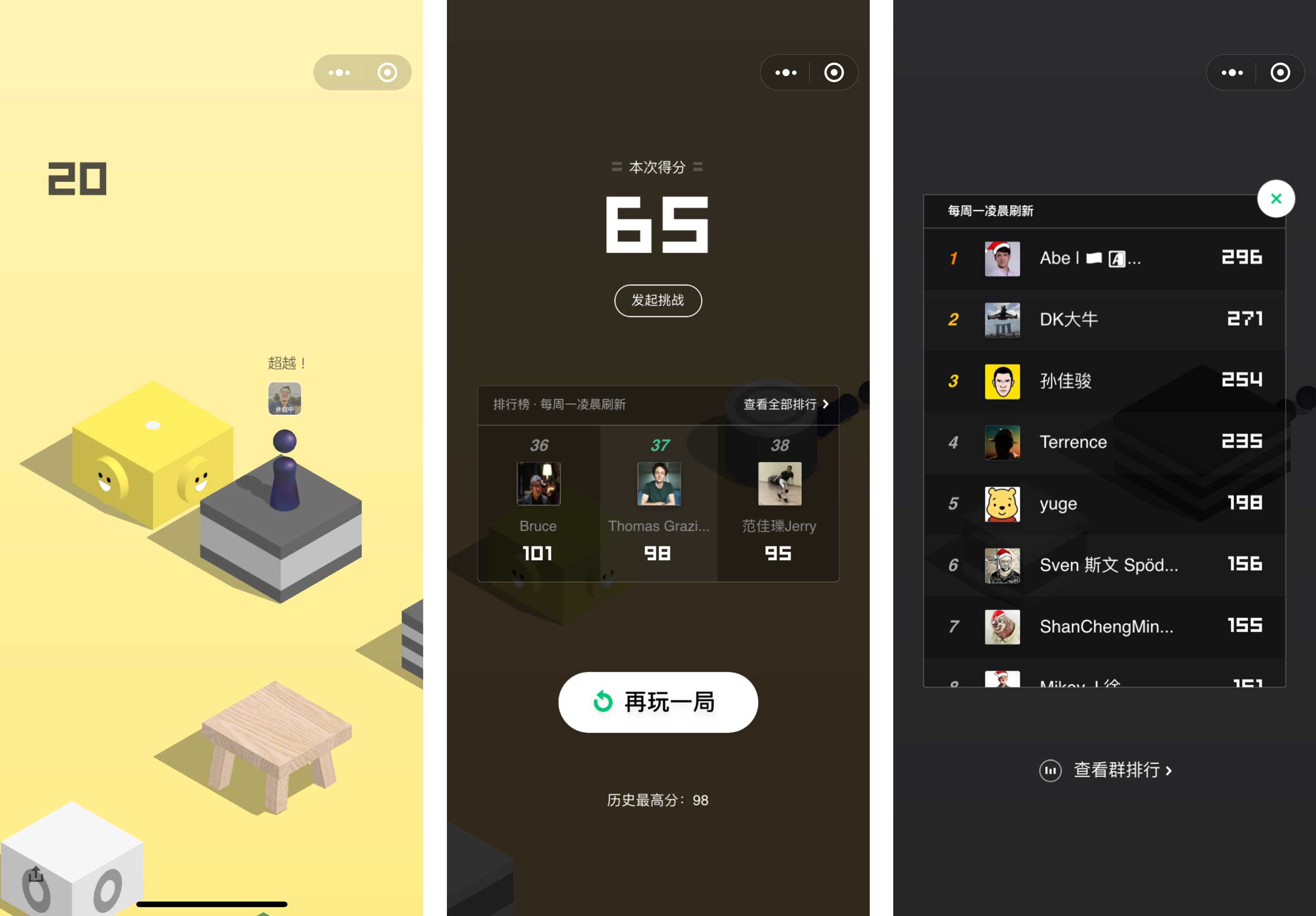
Mini-games are also a great way to provide a glimpse of a native game (for instance the first few levels) before inviting users to download the native App.
“纪念碑谷” (Memorial Valley), a puzzle game full of soul and personality, uses this tactic by offering the first few levels via mini-programs, and then inviting users to either download the native App or share about the game (by sending animated mini-program cards) with their friends.
What are the drawbacks of WeChat mini-games?
WeChat mini-games are however plagued with the same drawbacks as mini-programs:
- Inability to share on Moments
- Limits when it comes to the size of the application
- Compared to H5, you need to submit the App to Tencent after each update
- Compared to native Apps, limits in terms of notifications you can send to the user
Mini-games are however different from other mini-programs, in the sense that the power of the social integration arguably compensates for these drawbacks.
What were the first WeChat mini-games released?
WeChat first approved 17 WeChat Mini-games on the launch date. These games are naturally the ones with a strong social component:
- Games with a strong competitive dimension (ex: simple “flash-style” game with a simple goal of getting a high score)
- Simple multi-player games (cards, chess, mahjong)
For example, a competitive “war” game involving breaking through maps with a tank: 欢乐坦克大战:
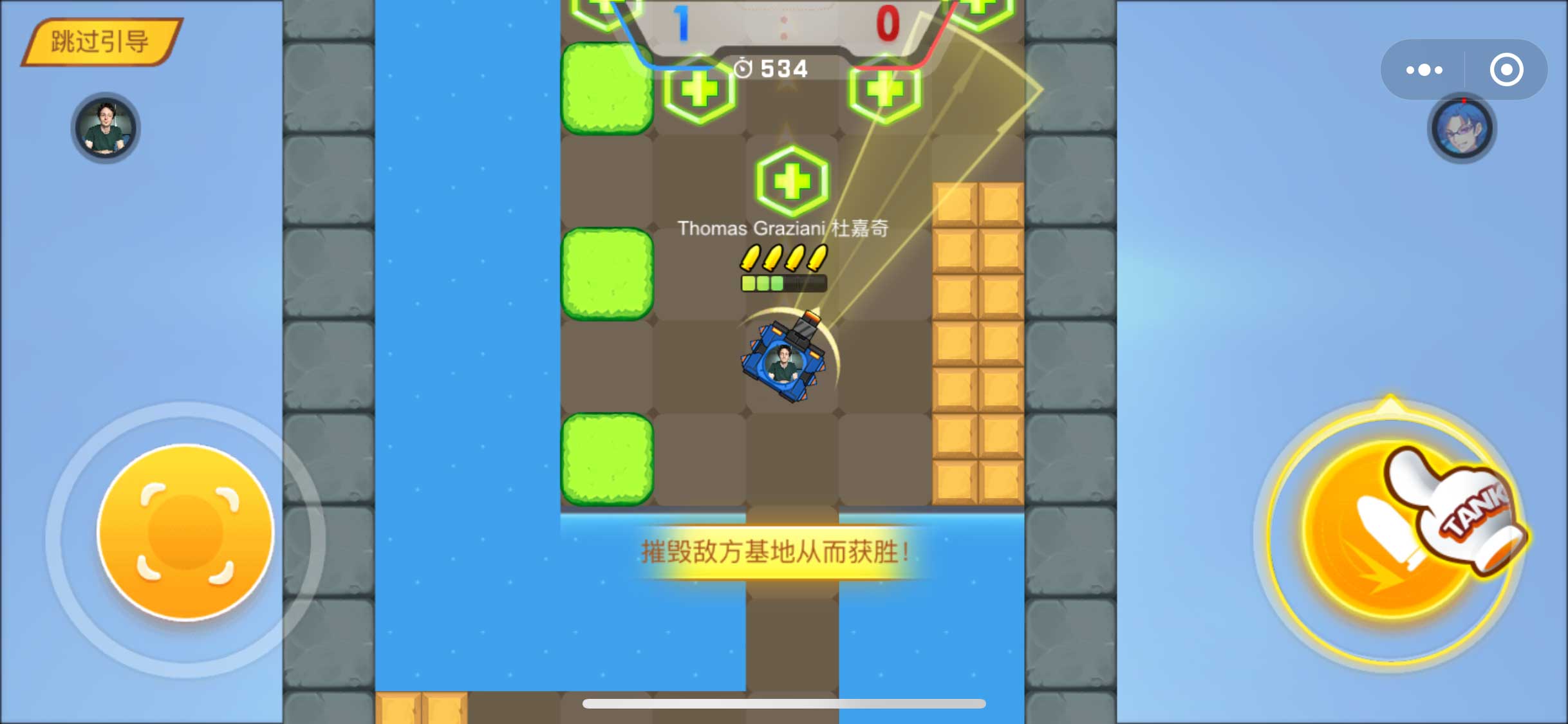
Other games include 天天德州 (a card game), 贵州麻将 (a mahjong game) and 欢乐斗地主 (another card game). This selection reflects how traditional-game are standing out among mini-games.
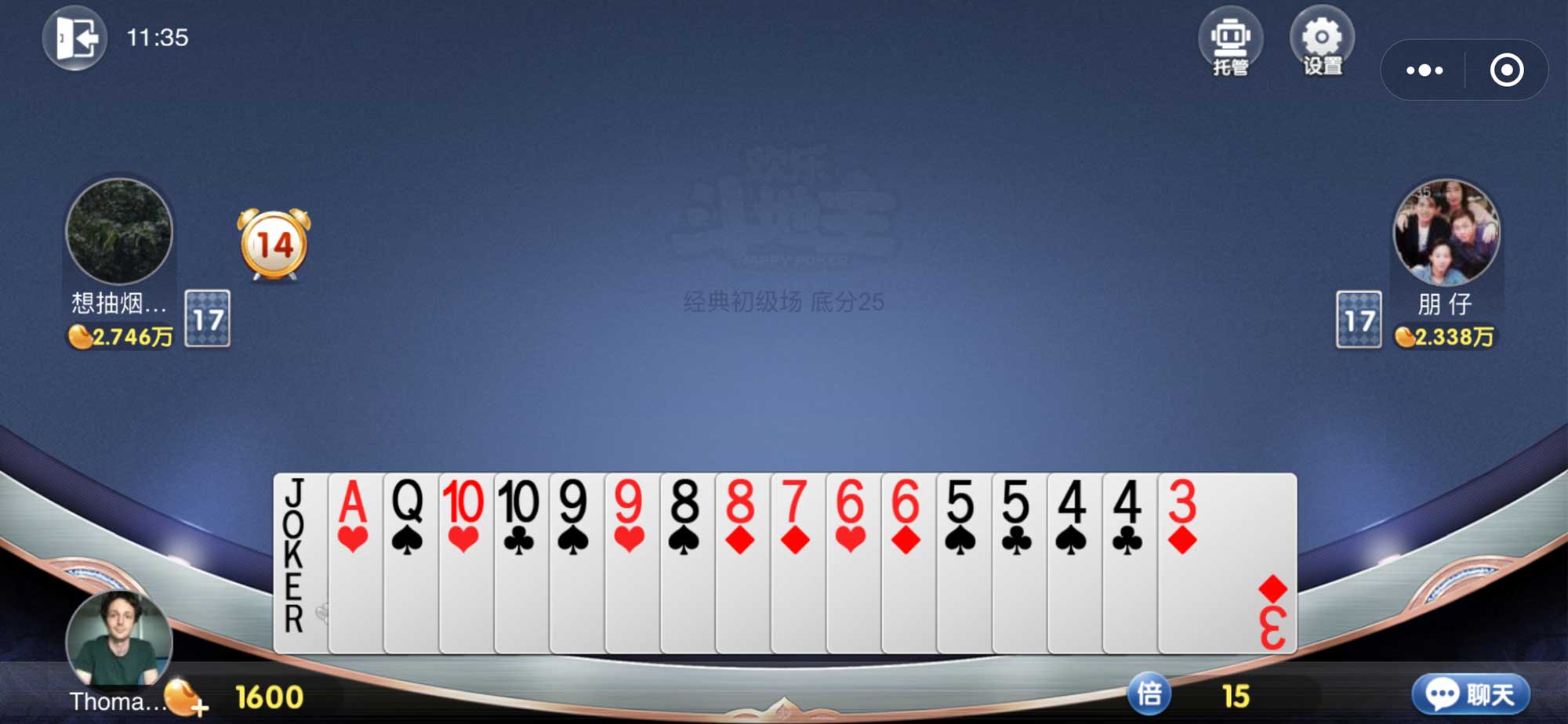
Another game in this early-release is a “candy-crush” style mini-game, simple yet very addictive.
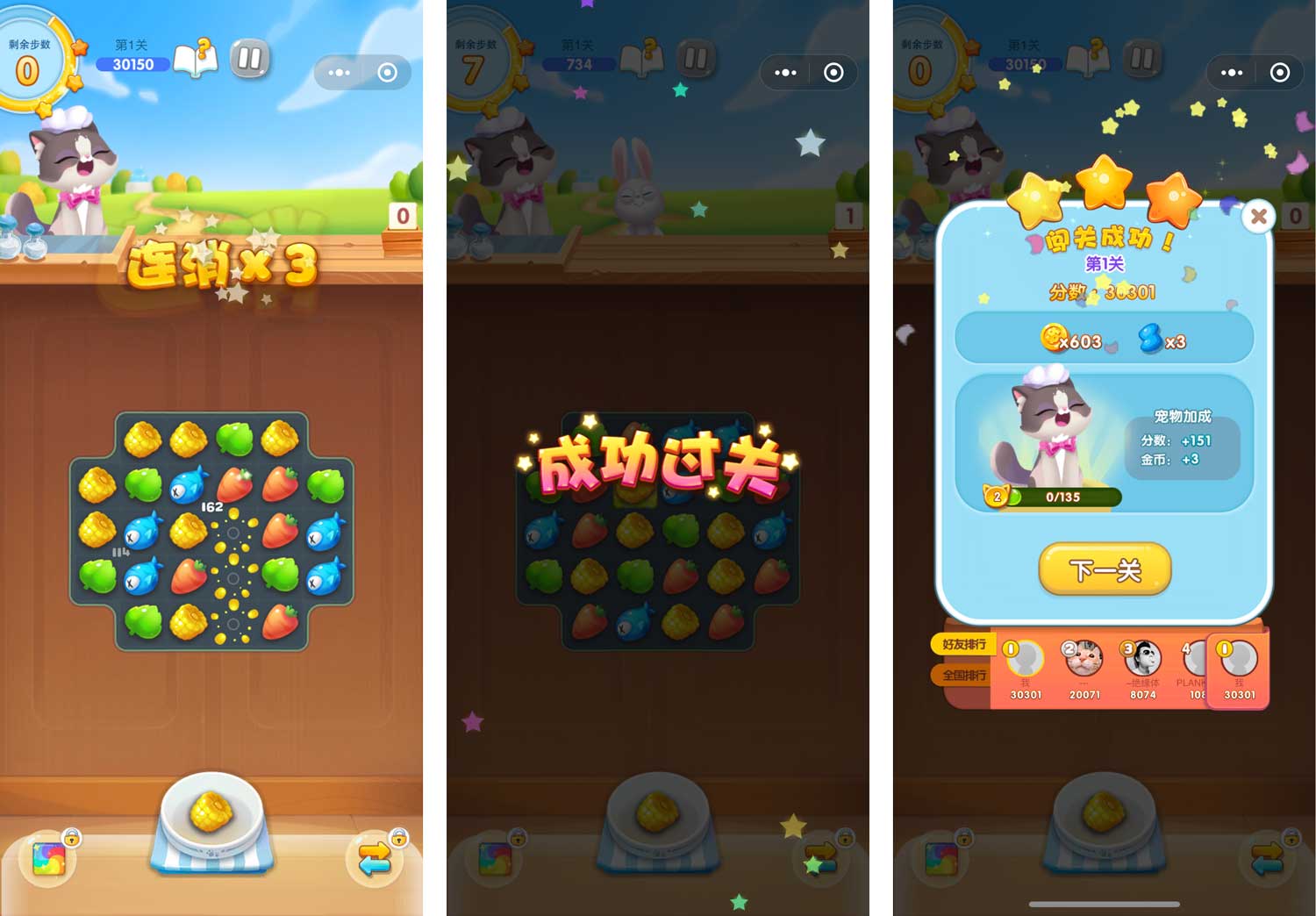
Why does it matter?
Most of the approved mimi-games today are owned by Tencent. Even for popular games like Memorial Valley2, Tencent fully owns the China distribution right. Tencent has a clear self-interest to leveraging its WeChat to drive traffics to its own games.
This is a particularly big deal because games are a major contributor to Tencent revenues.
During Q3 2017, games amounted for 41% of Tencent revenues, registering a 48% YOY growth. With mini-games, Tencent likely hopes to reach a broader number of casual gamers, who would not otherwise go through the hassle of downloading a native application.
And by embedding in-game purchases with WeChat payments, mini-games could become a major contributor of revenue for Tencent.
Beating Facebook once again
Tencent is not the first company to come up with the “mini-game” concept. Facebook had rolled-out instant games earlier this year, and recently announced in-app purchases & ads for these games (in October) and upgraded them with a live-streaming feature (in December).
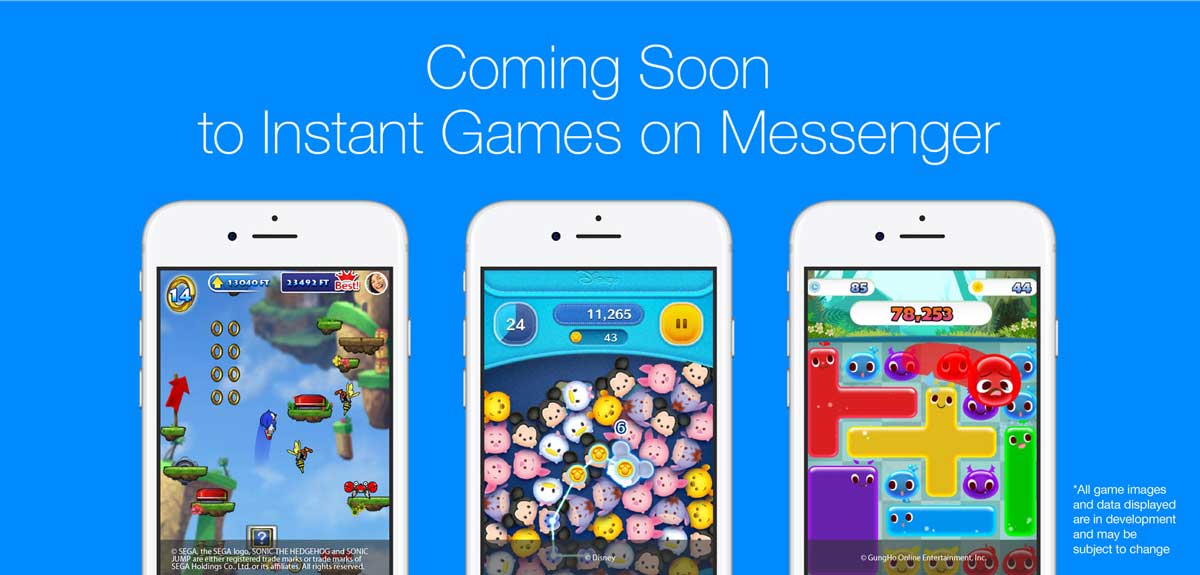
Almost one year after launch, only 70 titles are available on the Facebook platform, and Facebook has been very shy about how many users have actually been playing them (most users seem unaware of their existence)
As with payments, WeChat seems to be beating Facebook to the punch, with a better integration which actually managed to drive user engagement.
Conclusion
Although WeChat mini-games suffer from some of the more general drawbacks of mini-programs, they show great potential.
Their social features make them extremely addictive, and the combination of speed and ease-of-installation might put them in a sweet spot for a lot of potential users.
Moreover, given the central role played by gaming revenues for Tencent, this new innovation might be critical to the company’s bottom line.


